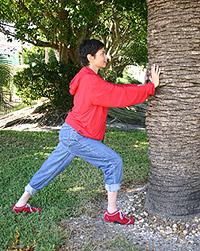 Loading... Please wait...
Loading... Please wait...- Home
- CONTACT
- COACH
- Moving Free™
- SHOP
- CLUB
- ART
- FABULOSITY®
- BIO
- CONSULT
- AMAZON
-
Live Long
- Diet & Nutrition
- Easy Exercise Videos Mirabai Holland
- Fitness Longevity
- Fabulous Forever After 50 Mirabai Holland
- Senior Exercise Videos Mirabai Holland
- Baby Boomer Exercise Mirabai Holland
- Beginner Exercise Videos Mirabai Holland
- Moving Free
- Weight Loss
- Cardio
- Strength
- Flexibility
- Body Type
- Stress Reduction
- Medical Care
-
Health
- Exercise and Memory Issues
- Chronic Stress: How To Get Rid Of It
- Exercise & Heart Disease
- Exercise & Diabetes
- Exercise & Autoimmune Diseases
- Osteoporosis
- Exercise for Arthritis
- Back Pain
- Exercise & Orthopedic Issues
- Coping With Cancer
- Pulmonary Asthma
- Exercise And Parkinson's Disease
- Perimenopause & Menopause
- Exercise & Depression
- Sleep Better with Exercise
- BLOG
Categories
Our Newsletter
Exercise & Autoimmune Diseases

Women are more prone than men to developing diseases where the body’s immune system fights its own tissue. Diseases that fall into this category include chronic fatigue syndrome, fibro- and polymyalgia, lupus, rheumatoid arthritis.
According to the U.S. Department of Health and Human Services Office on Women’s Health “Get regular exercise (but be careful not to overdo it). Thirty minutes most days of the week is best, but talk with your doctor about what types of exercise you can do. A gradual and gentle exercise program often works well for people with long-lasting muscle and joint pain. Moving Free® videos like Fabulous Forever® Easy Stretch and Easy Aerobics and some types of yoga or tai chi exercises may be helpful." Here are a few suggestions. Click the individual pictures to learn about each.
 Chronic Fatigue Syndrome – A recent study by the federal Centers for Disease Control have traced chronic fatigue syndrome to a handful of brain- and immune system-related genes. These genes either have small mutations or work abnormally. The syndrome – often dismissed as patients’ imagining symptoms – includes complex and poorly understood physiological, neurological, psychological and behavioral factors. The CDC study tested 20,000 genes known to be involved in the body's response to infections, injuries or emotional trauma. Several hundred were found to be over- or underactive in some patient groups. A few dozen of those genes involved immune system regulation, the adrenal gland and the brain's hypothalamus and pituitary gland, all having roles in stress response. A few genes seemed to affect levels of serotonin (a neurotransmitter regulated by many antidepressant drugs); glutamate, a stress-response chemical in the brain; and abnormal levels of some hormones that affect stress and mood.
Chronic Fatigue Syndrome – A recent study by the federal Centers for Disease Control have traced chronic fatigue syndrome to a handful of brain- and immune system-related genes. These genes either have small mutations or work abnormally. The syndrome – often dismissed as patients’ imagining symptoms – includes complex and poorly understood physiological, neurological, psychological and behavioral factors. The CDC study tested 20,000 genes known to be involved in the body's response to infections, injuries or emotional trauma. Several hundred were found to be over- or underactive in some patient groups. A few dozen of those genes involved immune system regulation, the adrenal gland and the brain's hypothalamus and pituitary gland, all having roles in stress response. A few genes seemed to affect levels of serotonin (a neurotransmitter regulated by many antidepressant drugs); glutamate, a stress-response chemical in the brain; and abnormal levels of some hormones that affect stress and mood.
More research is needed to determine the causes and possible treatments for chronic fatigue syndrome. Meanwhile, some women turn to alternative remedies such as stress-relief through easy exercise, meditation, massage and acupuncture, as well as from foods high in certain vitamins and minerals:
 Vitamin B12 (sometimes needed as a supplement by older women who are less able to absorb it from foods)
Vitamin B12 (sometimes needed as a supplement by older women who are less able to absorb it from foods)- Vitamin C (from citrus fruits, strawberries, kiwis, tomatoes, broccoli, cabbage, red peppers)
- Magnesium (from spinach, quinoa, almonds, avocados, chocolate, pumpkin seeds, oysters, sunflower seeds, brazil nuts, buckwheat and barley)
- Vitamin A/beta-carotene (from carrots, sweet potatoes, winter squash, broccoli, apricots and canteloupe)
- Zinc (from barley, whole wheat, oysters, lamb, beef chicken, turkey are believed by some to help this condition.
Although caution is advised with herbal supplements, some recommended for this condition include Siberian ginseng, licorice extract, coenzymeQ and alpha-lipoic acid. (Some others may not be advisable: St. John’s Wort has been found to have interactions with other medications and kava may have possible negative effects on the liver.)






